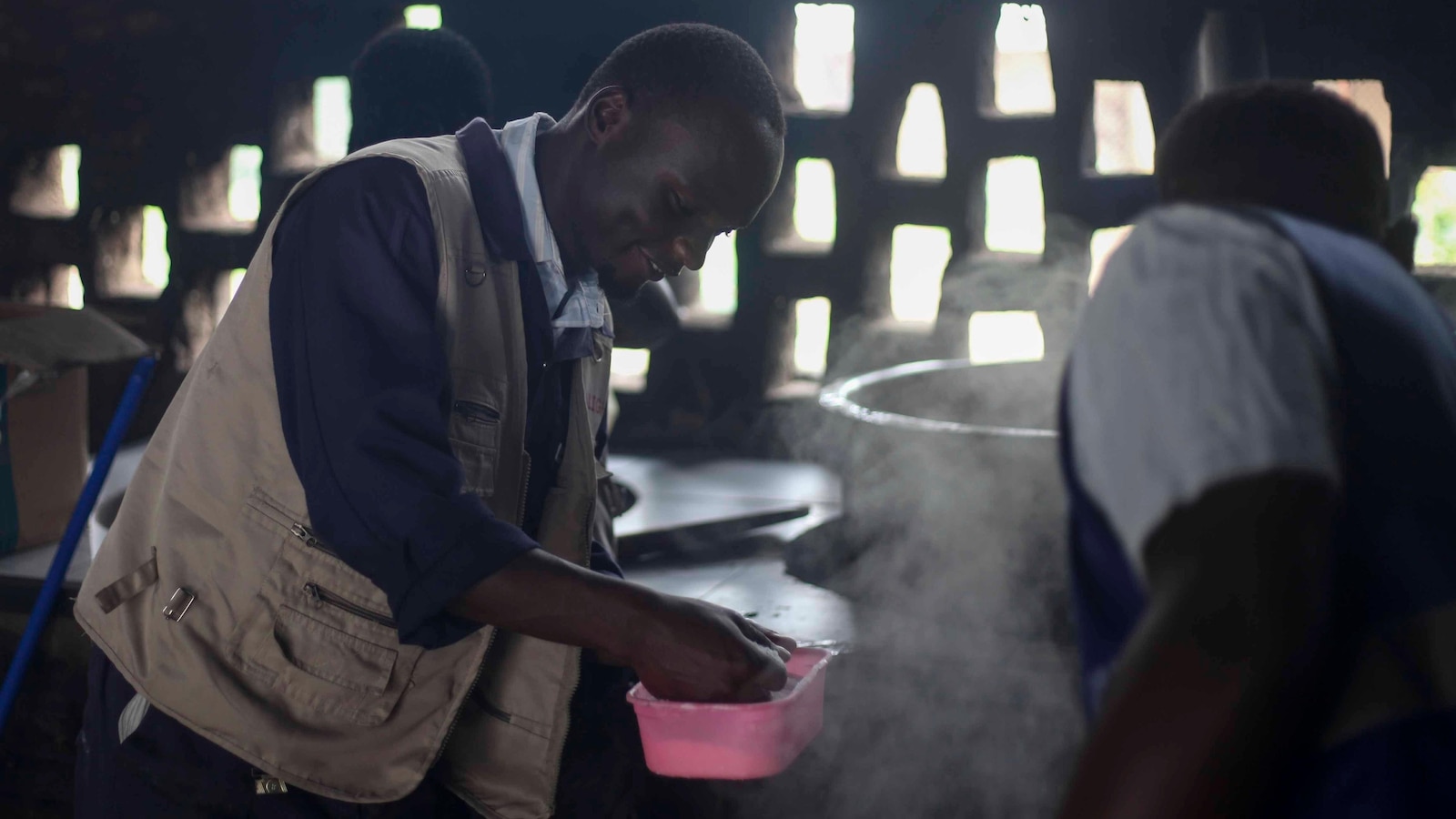RWAMWANJA, Uganda — For months, Agnes Bulaba, a Congolese refugee in Uganda, has had to get by without the food rations she once depended on. Her children scavenge among local communities for whatever they can find to eat.
“As a woman who’s not married, life is hard,” Bulaba told The Associated Press. Some locals “keep throwing stones at us, but we just want to feed our kids and buy them some clothes,” said the mother of six, who often works as a prostitute to fend for her family.
Uganda is home to more than 1.7 million refugees, the largest refugee-hosting country in Africa, according to the United Nations refugee agency. Despite being renowned for welcoming those fleeing neighboring violence, Ugandan officials and humanitarians say dwindling international support coupled with high numbers of refugees have put much pressure on host communities.
Approximately 10,000 new arrivals enter Uganda each month, according to U.N. figures. Some have recently fled the war in Sudan, but most are from neighboring South Sudan and Congo.
Bulaba is among tens of thousands in Rwamwanja, a refugee settlement in southwestern Uganda. As in other settlements across the east African country, refugees there are given small plots of land to cultivate as they are slowly weaned off total dependence on humanitarian food rations.
Since 2021, as funding consistently declined, the U.N.’s World Food Program has prioritized the most vulnerable groups for food assistance, in food items or cash, which can be as little as $3. After spending three months in Uganda, refugees are eligible to get 60% rations, and the number falls by half after six months. Only new arrivals get 100% food assistance, leaving the vast majority of some 99,000 refugees in Bulaba’s settlement vulnerable to hunger and other impoverishment.
In 2017, the Ugandan government and the U.N. held a summit in Kampala, the capital, and appealed for $8 billion to deal with the sharp influx of refugees from South Sudan at the time. Only $350 million was pledged.
Filippo Grandi, the United Nations High Commissioner for Refugees, visited Uganda last week in a trip partly aimed to underscore the funding shortage.
The international community “should not take Uganda’s generosity and the global public good it provides for granted,” Grandi said in a statement at the end of his visit. “Services here are overstretched. Natural resources are limited, and financial support is not keeping pace with the needs.”
He also said international support “is urgently needed to sustain Uganda’s commitment to refugees,” urging donors and humanitarian partners to “come together with the government to address the needs of refugees and the generous communities hosting them.”
Refugees in Uganda have access to the same hospitals as locals, and their children can attend school. While this helps integrate them into the Ugandan community, sometimes the competition for limited resources sparks tension. However, violence is rarely reported.
Hillary Onek, the Ugandan government minister in charge of refugees, said during Grandi’s visit that local officials need support to help refugees become more self-reliant. Though he said the country was “overloaded” with refugees, he cited several training options to help refugees become self-sufficient, including carpentry, bricklaying and metal welding.
“We are trying to be innovative,” he said. “Given the fact that funding for refugee programs dwindled over the years, there is not enough money to meet their demands, not even giving them enough food to eat.”
Onek said the alternative is “to survive on your own, using your skills, using whatever capacity you have.”
But Bulaba, the Congolese refugee who has been in Uganda since 2014 after fleeing violence in her home country with her two children, said she can’t find a job. She has since had four other children who often go barefoot and without appropriate clothing. She misses the cash-for-food stipend she used to get.
“For us to eat, we look for work, but there’s no work,” she said.
___
Associated Press writer Rodney Muhumuza in Kampala, Uganda, contributed to this report.
___
The Associated Press receives financial support for global health and development coverage in Africa from the Gates Foundation. The AP is solely responsible for all content. Find AP’s standards for working with philanthropies, a list of supporters and funded coverage areas at AP.org.

